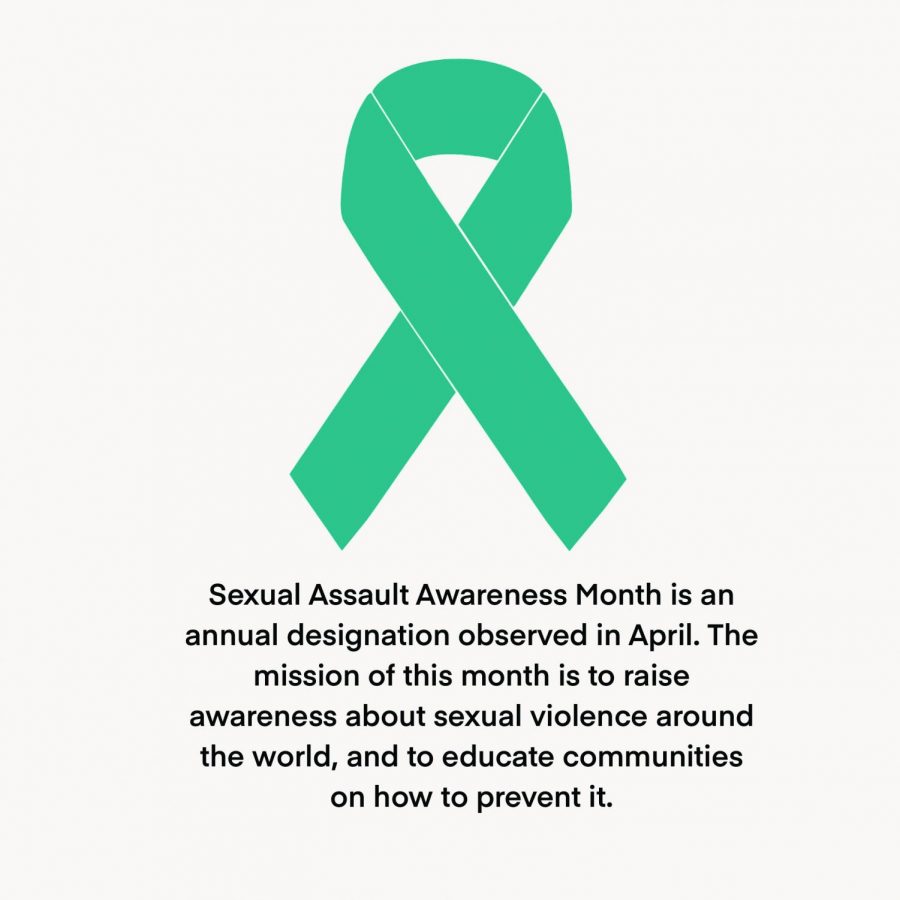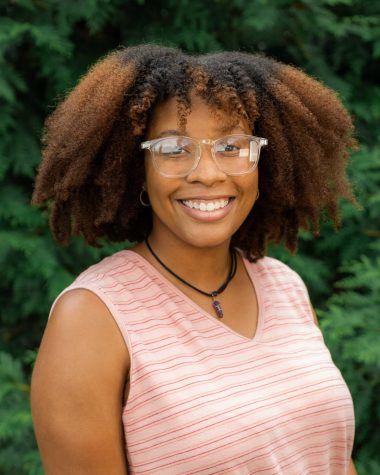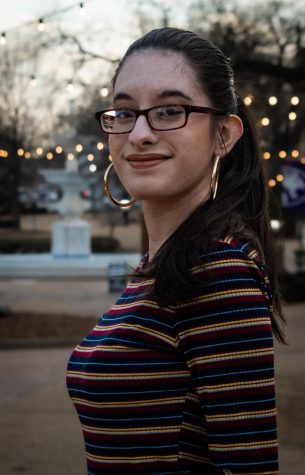UNA to turn campus teal for April
April 8, 2021
The University of North Alabama’s Office of Title IX plans to bring awareness to Sexual Assault Awareness Month (SAAM), a month used to raise public awareness and to educate individuals on how to prevent sexual violence, by turning campus teal.
To make this happen, the Office of Title IX is partnering with Fraternity and Student Life and One Place of the Shoals to put up teal ribbons, a designated symbol of the month, across campus.
“The increased visibility [of the ribbons] on campus will encourage students to ask questions and to learn more about the far-reaching impact of sexual assault and how it can touch anyone within a community,” said Kayleigh Baker, Title IX Coordinator.
The mission of UNA’s Title IX Office is to build a community free from discrimination, including sexual harassment and other forms of sexual misconduct, so that each student, employee and visitor can work, learn, and succeed in a safe, supportive and educational environment.
Baker said in carrying out their mission, Title IX able to support our students who have been impacted by sexual assault in numerous ways.
One of the biggest ways that Title IX plans to do that is by providing supportive measures, or resources, to students who have experienced sexual assault or any other form of sexual harassment.
“This can look like assistance with safety planning, issuing No Contact Orders, referrals to counseling, helping the Complainant,” Baker said. “In the Title IX world, Complainant is the name for someone who reports that they’ve experienced sexual harassment. In other spaces, they would likely be called a victim or a survivor. [We help them] contact law enforcement, and many other things depending on the case.”
Title IX can also connect the student with community resources, including One Place of the Shoals. At One Place of the Shoals, students can get connected with Crisis Counselors, law enforcement, legal assistance, and they also can receive forensic examinations all at one location.
Baker said the office can provide this support whether or not the university has jurisdiction to conduct a “Title IX Investigation” or whether or not the Complainant wants an investigation.
“I think that’s a really important thing for our students to know – we can provide support without having to initiate an investigation and without having to let anyone else know that the Complainant has reached out or told anyone about the encounter,” Baker said. “[This is] including the Respondent.”
In the Title IX world, Respondent is the name for someone who is alleged to have committed some form of sexual harassment, including a sexual assault or rape. In other spaces, they could be called the accused or the defendant.
In the university’s most recent Clergy Crime Report, it showed that in 2017 there was one incident of forcible sexual offenses, two incidents of dating violence, eight incidents of domestic violence, two incidents of aggravated assault, and three incidents of non-forcible sexual offenses.
“Since last August, the definitions for certain violations under Title IX have changed,” Baker said. “Prior to then, UNA tracked the number of incidents involving ‘non-consensual sexual intercourse’ and ‘non-consensual sexual contact.’ Since August, we have ‘sexual assault’ and further, some ‘non-consensual sexual contact’ as potential policy violations.”
Baker said Title IX sees higher numbers of non-consensual sexual contact types of potential violations and higher number of reports of dating violence in our campus community compared to other possible types of reports.
“These trends are seen nationally, as well,” said Baker.
However, Title IX is not the only office on campus working to provide guidance and awareness for this month.
The Center for Women’s Studies also plans to aid in turning UNA teal with their various events. The center will be holding These Hands Don’t Hurt on April 13 and 14 from 12:30 to 2:30 p.m. and a Sexual Assault Zoom Information Session with One Place of the Shoals on April 14 from 5:30 to 7 p.m.
The center will also hold a self-defense training course with UNA Police Officer Shequanda Jerkins on April 15 from 5 to 6 p.m.
Lynn Rieff, Director of Center for Women’s Studies, said that this month is important because, unfortunately, sexual assault on college campuses remains a problem.
“As a society, we’ve gotten to the point where we lift up survivors,” Rieff said. “Survivors, depending on the person, are more comfortable speaking out about those issues because we are to a point where we do recognize that it is a public issue and we have services.”
Rieff remembers a time where those services were not available.
“45 years ago, when I was a freshman in college, my roommate’s sorority sister was raped at a fraternity party,” Rieff said. “There wasn’t any crisis center that victims could go to. There weren’t any shelters.”
She said that, at the time, sexual assault was not on anyone’s radar.
“When it happened, my friends and I thought, ‘That kind of thing can’t happen to us,’ Rieff said. “The truth is, it can. It can happen to anybody.”
The Center for Women’s Studies wants to be sure that our campus community is aware that there are health services and counseling in the Shoal’s community that can be helpful if this violence does occur. They ensure this by keeping pamphlets and business cards of these services in their building.
Rieff’s hope is that this month is that more students are comfortable in coming forward.
“Not that they should feel compelled to speak publicly about their experience,” Rieff said. “That’s a personal experience. I hope that we have gotten to a point where people feel comfortable seeking assistance that they need.”




